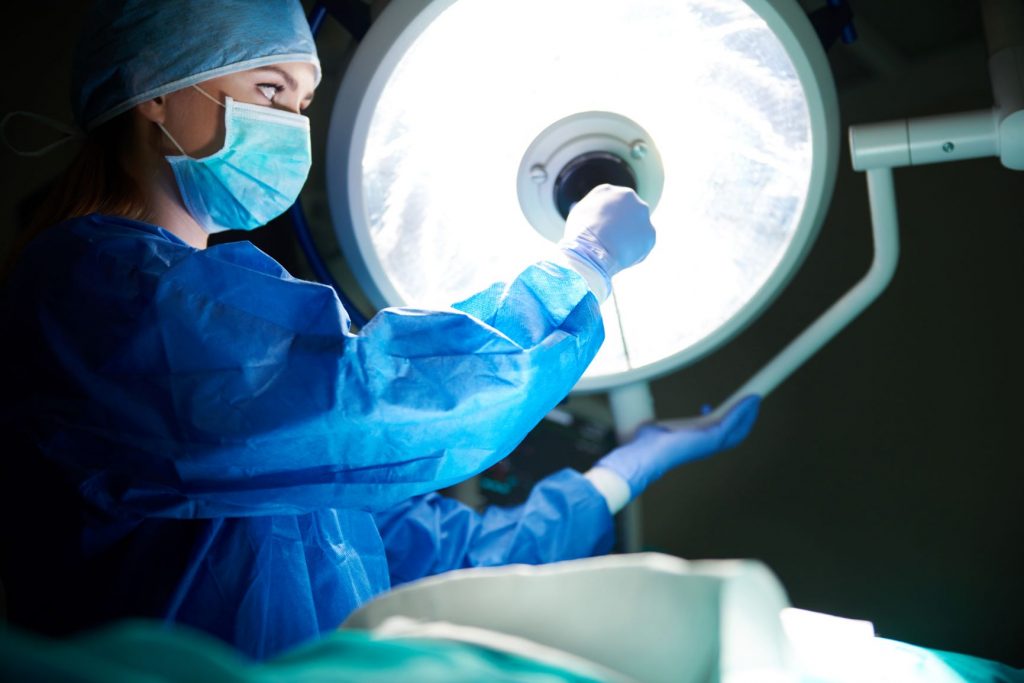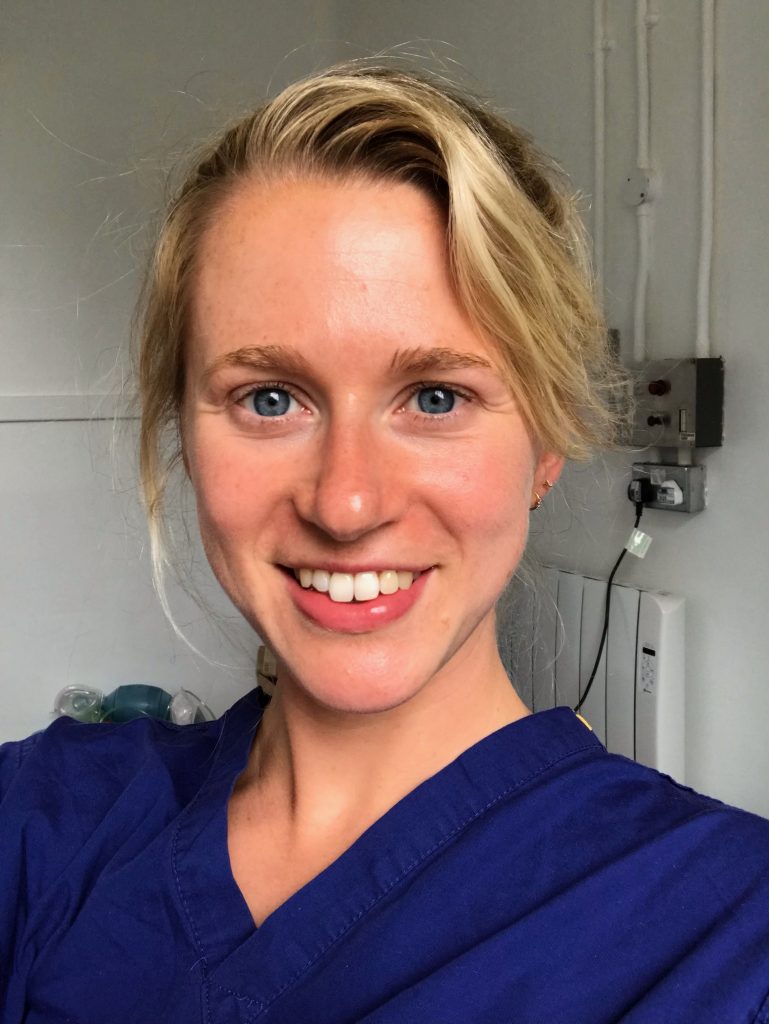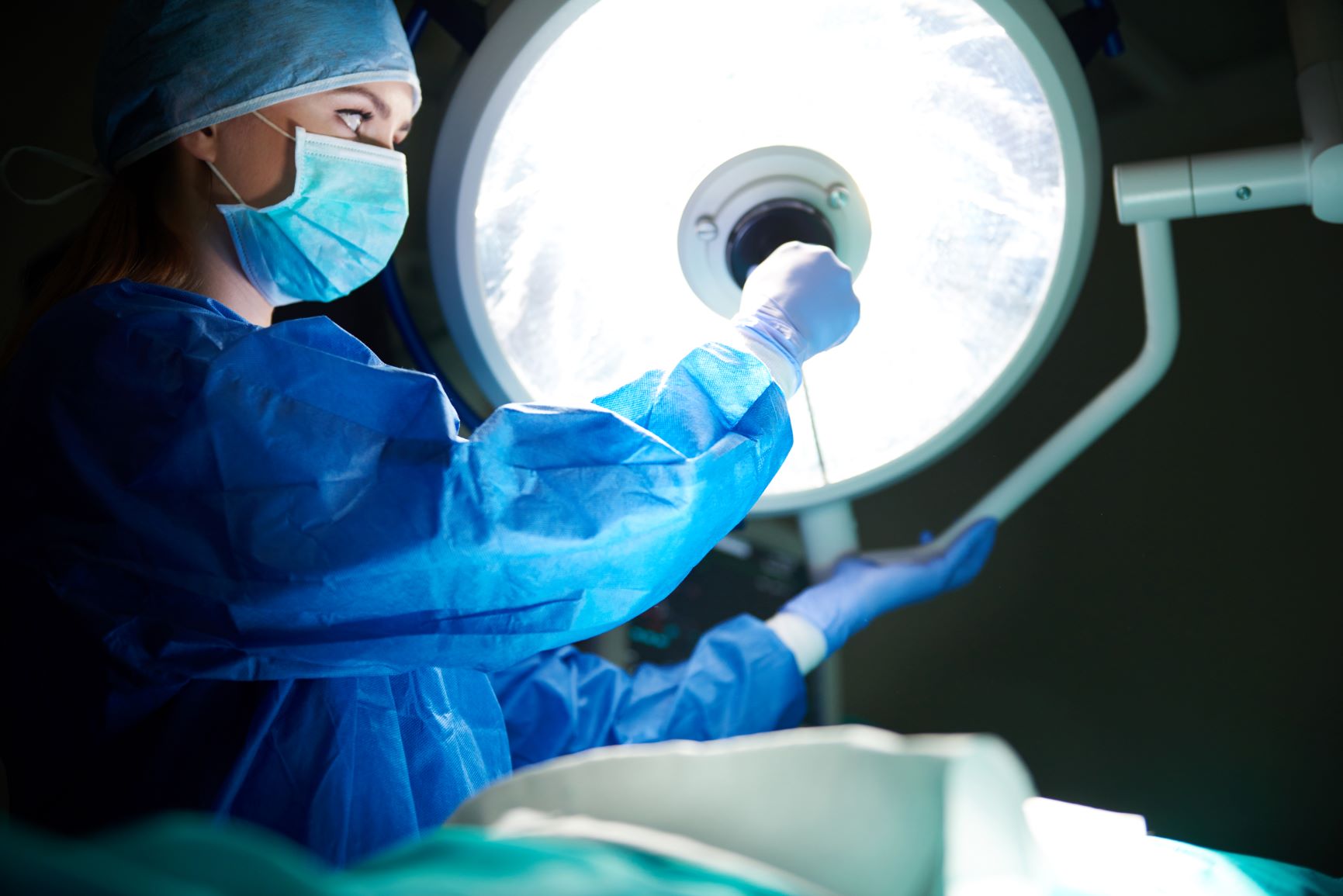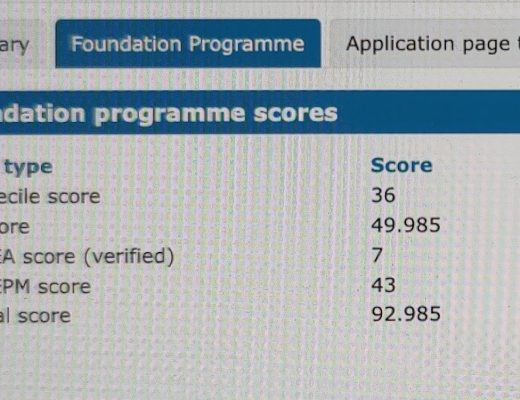Getting into anaesthetics training is very competitive – the first step to have a chance is to get a great score in the Multi-Specialty Recruitment Assessment (MSRA). This is a computer-based assessment which is used by a number of specialties for entry into post-graduate medical training. Dr Evelina Russell shares how she successfully prepared for the MSRA and went on to secure one of the most competitve training posts in anaesthetics in the London deanery after scoring 640 in her MSRA.
Why did I apply for anaesthetics?
My interest in anaesthetics began in medical school, but it wasn’t until I had completed my FY3 year that I made the decision to pursue a career in the specialty. While working as a clinical fellow in A&E after foundation training, I was able to reflect on what I found most satisfying at work and realised that it was to look after one patient, closely monitor and manage them and to give them the best possible care that I could, however sick they were. I knew that anaesthetics enabled and empowered me to do this, so I applied for a clinical fellow post in perioperative medicine where I started working in August 2021. This gave me a fantastic insight into a career in anaesthetics and affirmed that it was the career that I wanted to pursue. I then applied in November 2021 for August 2022 entry.

Decision made. What next?
I started by getting a good understanding of the whole application process relatively early on, in August 2021. I familiarised myself with the applicant guidance on the ANRO website and made a note in my diary of key dates. Significant changes had been made to the anaesthetics application process as a result of the Covid-19 pandemic, including the introduction of the MSRA exam and the online interview, so reading the up-to-date material was invaluable.
The anaesthetics application for August 2022 entry consisted of the oriel online application in November 2021, the MSRA exam in January 2022, followed by an online interview in February – March 2022.

The oriel online application was straightforward; I was required to input personal and professional details, employment history, referee details and supporting information. Supporting information included evidence of additional undergraduate degrees and qualifications, postgraduate degrees and qualifications, additional achievements in the form of prizes, awards, distinctions (limited to six) and relevant training courses attended (again, limited to six). There is no supporting statement required, and this part of the application ensures that you meet all the essential criteria to progress further in the process. It makes no contribution to your total selection score.
For the anaesthetics application, MSRA performance determines invitation to online interview. As the number of eligible applications exceeds interview capacity, a good performance in the exam is essential to proceed to the next stage of the application process. Adequate preparation is, therefore, crucial. Furthermore, not only is a good MSRA performance needed to get an interview, it is also necessary for getting a job. For August 2022 entry, the MSRA score contributed 15% towards the total selection score with the other 85% the interview. Although 15% seems minimal, it can make all the difference. Some of my peers performed well at interview but their lower MSRA score meant they lost out on a job, despite it being high enough to get them an interview.
In summary, the MSRA matters if you want an anaesthetics training job!
OK, got it. So how do I get a good MSRA score?
Preparation and performance is key. Understanding the format of the MSRA exam is important for preparation and for knowing what to expect on the day.
The MSRA is a computer-based assessment, sat at a Pearson Vue test centre and is 170 minutes long. There are two components – the Professional Dilemmas (PD) paper and Clinical Problem Solving (CPS) paper. The PD component runs first, lasting 95 minutes. This is followed by an optional 5 minute break, and then the CPS paper lasting 75 minutes. You cannot go back to the PD paper once the 95 minutes is up and 50% weight is given to each paper.
The PD paper is similar to the SJT exam sat at the end of medical school and relates to the Generic Professional Capabilities framework outlined by the GMC. It covers three core domains: professional integrity, coping with pressure, and empathy and sensitivity. Although I admittedly didn’t spend as much time preparing for the PD paper as I did for the CPS paper, preparation is possible (more on this later) and don’t forget it makes up 50% of the MSRA score!
The CPS paper relates to the application of clinical knowledge to make clinical decisions and is based on the foundation programme curriculum. There are 97 questions on 12 clinical topic areas relevant to general medicine, with questions covering diagnosis, investigation, emergency management, prescribing and non-prescribing management. Like medical school finals, the contents are broad, from ophthalmology to allergy. Although the intention is primarily to assess your ability to apply knowledge appropriately, you need the knowledge to be able to apply it and the knowledge you need is extensive.

I found that it was not the level of detail required that was the challenge, but rather the breadth of clinical topic areas that I needed to know and as it had been over three years since I had sat medical school finals, this meant a fair amount of revision. It is worth saying that the exam was originally set up for GP training entry and is now for application to numerous specialties, not just anaesthetics. An extensive knowledge of the pharmacology of anaesthetic agents, unfortunately, provides no benefit in your application process to anaesthetics training and instead, a good understanding of the modes of action of various contraceptive methods available will. I did find this at times difficult, especially when it feels like there is a lot of topics to cover and preparation to do for only 15% of the total score, whilst also working a busy rota in peri-pandemic times. Accepting this and preparing as best as possible is fundamental in getting an anaesthetics training job in the application process as it stands.
How do I prepare?
I think the first step is working out how much time you need and have, which will vary considerably from person to person. Given the breadth of knowledge required, I would have struggled to ‘cram’ at the last minute. Instead, I opted for slow and steady preparation that allowed me time to cover the relevant material at a manageable pace whilst working and enjoying life, which paid off in the end.
I sat down in October, got an overview of the topics I would need to cover, and made a rough revision timetable. I ‘properly’ starting revising at the end of October 2021, which gave me just under three months to prepare. I decided to split up the 12 CPS topic areas and aimed to revise two topic areas a week plus some PD. At the time I was working a busy rota and I would fit in studying on my days off, before or after work, and occasionally at work when there was a quiet moment. Things didn’t always go to plan and some weeks I wasn’t able to get any study time in. Starting my revision as early as I could and having some flexibility in my revision timetable helped me to keep on track. I had read online that some recommended setting aside at least 3 months to prepare; whilst I imagine the more time the better, I think it really depends on how much time you realistically have in the lead up to the exam and how you like to revise. For me 3 months was ample time to prepare well, work and continue doing what I love…swimming in the sea.
By mid-December I had revised most of the topic areas at a basic level and spent the final month before the exam doing as many questions as possible, honing my knowledge of the clinical topic areas, doing mock exams and recapping my revision notes, particularly my weaker areas. This helped me to feel reasonably prepared and to reduce last minute exam panic.
Which revision resources?
The breadth of knowledge required for the MSRA is not unlike medical school finals. I had ceremoniously burnt my medical school notes after graduating and fortunately would not have had the time to read through the hundreds of pages of notes in preparation for the MSRA anyway. I mainly used question banks supplemented with other reading material. After speaking to colleagues and reading online threads, I opted to use the MSRA question banks for Emedica and Pastest as both were well reviewed and highly recommended.
Preparing for the clinical problem-solving paper
As mentioned previously, I aimed to revise two clinical topic areas a week. I revised by going through questions relevant to the topic area, carefully reading the explanations and making relevant notes. I added to my notes from the relevant chapter of the tried and tested Oxford Handbook of Clinical Medicine and any key NICE and BNF guidelines. I also used the relevant Oxford Handbook for specialties such as paediatrics, accessed freely with an OpenAthens account, and ensured I was well-versed with up to date ALS guidance and algorithms.
My Emedica MSRA subscription was worth its weight in gold. The question bank contained hundreds of questions, and importantly, the questions were clearly grouped by topic area, which made it really easy to structure my revision and work through the topics systematically. The answers and explanations were in keeping with the most up-to-date NICE guidelines e.g. hypertension management and acne management.
Similarly, Emedica emailed out a daily ‘rapid review’ giving a concise summary of a particular topic area e.g. antibiotics in sore throat, screening for gestational diabetes, with a link to the relevant NICE Clinical Knowledge Summaries resource. I read these on the go which was a handy way to keep refreshing my knowledge, particularly when work was busy, and I was having difficulty fitting in any revision in.

Preparing for the Professional dilemmas paper
My preparation for the PD paper consisted of refreshing my knowledge of GMC guidance and by doing plenty of questions using question banks. The PD paper relates to the Generic Professional Capabilities framework outlined by the GMC, so it is worth reading it. I also re-read the GMC’s good medical practice and worked through the GMC’s good medical practice in action scenarios. I found the latter particularly helpful in bringing the guidance to life and in improving my understanding of how the guidance applies in practice. I think this was then helpful when answering the professional dilemmas questions.
Again, I used Emedica and Pastest and I felt that the style and content of the Emedica MSRA SJT questions were in keeping with those faced in the real MSRA exam. By doing plenty of questions, I was able to develop my own strategy for answering them. I found it helpful to read the clinical scenario, think about which core domain the scenario was testing (professional integrity, coping with pressure, or empathy and sensitivity) and answer accordingly. Applying a strategy came in useful when faced with a professional dilemma question that I was struggling to answer.
Final preparation
I spent the month before the exam reading through my notes and doing as many questions as possible, without filtering by clinical topic area to get me in the mindset of the real exam where questions are all randomly mixed together. I spent additional time on my weaker areas and gradually saw my scores improve. The week before the exam, I focused on the timed mock MSRA papers on Emedica which allowed me to practice under timed conditions. I also worked through the Pearson Vue generic demo on their website so that I was familiar with the exam format. The day before the exam, I made sure I knew where I was going, confirmed my travel arrangements, packed my ID ready and went for a long swim to relax.
The MSRA exam is a significant hurdle in the anaesthetics application process but can be overcome with the right preparation. How you prepare will be personal to you, but I hope this article provides some food for thought.
Good luck!
Dr Evelina Russell
Dr Russell had one of the highest MSRA scores in the country, with a total score of 640 – 318 for the clinical paper, and 322 for the SJT paper. She went on to do well at interview and got her 1st choice job. Part 2 of this article will focus on her tips for the interview.





No Comments